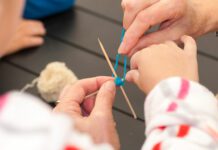Billionaire Mark Zuckerberg (founder of Facebook) recently announced that he is donating $100 million dollars to help overhaul the City of Newark’s school system. Fast Company Magazine asked 13 edu-experts how they would spend the money. The 13 radical answers they received were as varied as the 13 people they asked.
Check out their answers. But don’t just check them out…take time to think about them. Many of them may be a preview of where education as a whole is headed. Many of them may also have implications that could change the way we do Children’s Ministry.
RADICAL IDEA #1
“In the first few years of life, there are 700 new neuron connections formed every second. The achievement gap between a child born into extreme poverty and one of the professional class is evident by age 3. Yet public policy doesn’t engage the first five years of life. We still think of those years as belonging to the family, though this period is crucially important to the development of our workforce. With $100 million, I would build new centers for preschoolers, infants, and toddlers, with three teachers per classroom. Data show that kids with this level of instruction and focused play enter kindergarten in a position to compete.”
-Daniel Peterson, President of the Buffett Early Childhood Fund
RADICAL IDEA #2
“I can’t believe that in all the furor over testing, people aren’t debating the test itself, like whether the questions are any good. $100 million should be used to empower Joy Hakim to write from scratch the standardized tests for all the subject levels and grade levels. Hakim wrote an American history textbook 10 years ago that is fascinating and fun. It brings characters to life in a way that a novelist can. What if a standardized test was written not by a bureaucrat but by somebody who deeply loves the subject? If there were such a thing as a standardized test that wasn’t crazy and boring, then we might actually have a test worth teaching to.”
-Charles Best, Founder of DonorsChoose
RADICAL IDEA #3
“I’d focus on the arts – music and visual arts and dance, all the things that make kids joyful. Kids need a reason to come to school and testing is not a good reason.”
-Diane Ravitch, NYU education historian and author of The Death and Life of the Great American School System”
RADICAL IDEA #4
“What’s missing is more time for parents and teachers to meet. Everyone talks about how important that relationship is, but these 10-minute conferences are of no value and we handicap teachers by having them do this type of work on their own hours. Give parents time off for parent teacher conferences, just as we do for jury duty-it could be an employment policy. And have the student there; it makes the whole meeting more powerful.”
-Deborah Meier, senior scholar at NYU and human development leader of the Coalition of Essential Schools
RADICAL IDEA #5
“I would use the funds to attract the best teachers for two programs. One would be a Saturday academic program for struggling students, and I would try to determine if an extra three to five hours a week could drive their reading and math scores a particular way.”
-Geoffrey Canada, CEO of the Harlem Children’s Zone
RADICAL IDEA #6
“Unlike most professions, teachers don’t get enough professional development, and the development they do get is in furtherance of learning how to use some textbook. We’re not an agrarian society anymore; we’re a postindustrial nation. And the thing that’s coming around the corner is going to have something to do with technology or things yet unimagined. We have to do everything in our power to make kids prepared for that. The question I often ask is whether or not teachers are prepared for it. I would establish urban think tanks for teachers — a dedicated space to think about public education and how to change it, to identify different approaches that teachers can bring back to their classrooms.”
-Damian Jones, assistant principal at Francis W. Parker, a private school in Chicago












